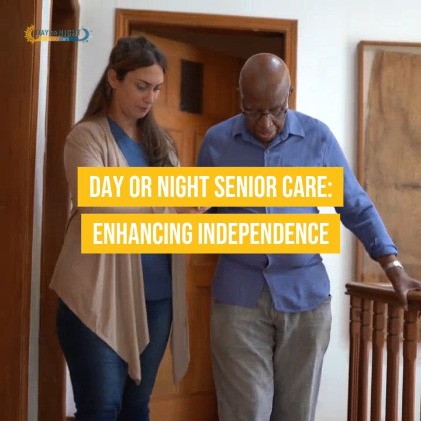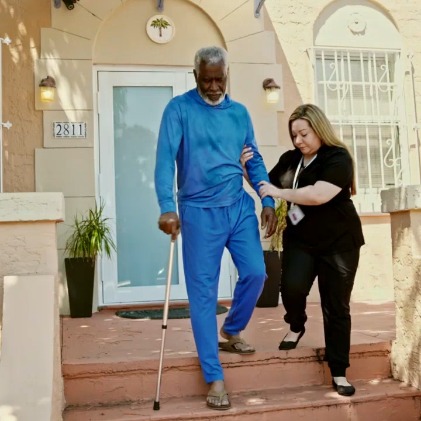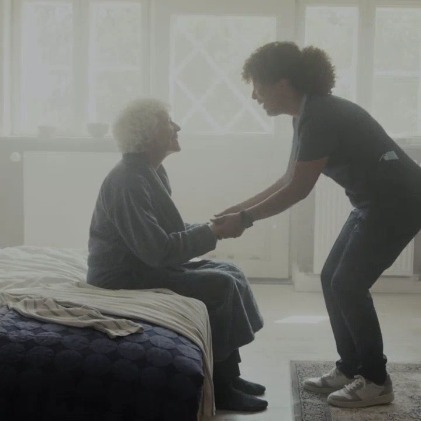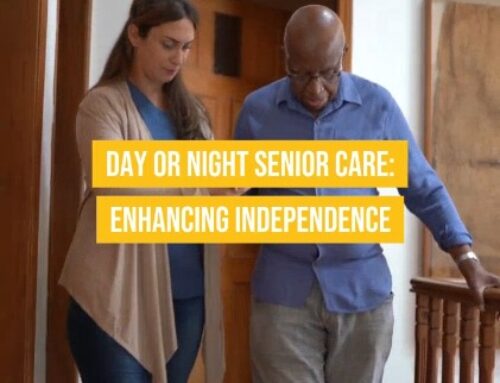Day or Night Senior Care: Is it Right for You?

Non-Medical Home Care: A Comprehensive Guide for Aging Loved Ones
When it comes to finding care for your aging loved ones, it’s essential to ensure you find the right type of care and the right person for the job. With a plethora of options available, from in-home CNA care to adult daycare centers, the process can quickly become overwhelming. However, if your loved one doesn’t require any medical skills or attention but needs assistance with daily tasks and companionship, non-medical home care can be the ideal solution. In this comprehensive guide, we will explore what non-medical home care entails, the types of care available, the differences between non-medical and medical care, signs to look for when considering non-medical care, how to find the right caregiver, the cost of non-medical home care, and whether Medicaid covers these services.
What is Non-Medical Home Care?
Non-medical home care can be defined as care without any medical assistance. It focuses on providing support and assistance with daily tasks and safety supervision. Unlike medical care, non-medical care does not involve administering drugs, changing catheters, or other medical procedures. Instead, non-medical caregivers offer companionship, socialization, and help with activities of daily living (ADLs).
Types of Non-Medical Care
There are two general types of non-medical care: companion care and personal care. While these types of care share similarities, there are a few key differences in the services they provide.
Companion Care
Companion care primarily focuses on emotional and social support. Caregivers in this category assist with daily activities and light housekeeping such as companionship, socialization, running errands, cooking, cleaning, and transportation to appointments or activities.
Personal Care
Personal care is more hands-on and includes assistance with activities of daily living (ADLs) such as bathing, dressing, feeding, medication reminders, and help with mobility and toileting.
The Difference Between Non-Medical and Medical Care
The primary distinction between non-medical and medical care is the level of care provided. Non-medical care is suitable for individuals who do not require specific medical attention beyond basic custodial care. On the other hand, medical care is necessary for those with health conditions that require medical training, such as administering medication or providing clinical monitoring.
Is Non-Medical Care Right for Your Aging Loved One?
Determining whether non-medical care is the right choice for your aging loved one involves considering various factors. Some signs that may indicate the need for non-medical care include forgetfulness, disorientation, difficulty with daily activities, coordination issues, and unsafe driving practices. Other warning signs to look out for include unpaid bills, poor personal hygiene, expired food, and an overall inability to fully take care of oneself.
The Benefits of Non-Medical Home Care
Beyond assistance with daily tasks, non-medical home care provides valuable emotional and social support, which can help alleviate feelings of loneliness and isolation. Caregivers can become trusted friends who not only ensure the safety of your loved one at home but also offer companionship and reduce the sense of isolation that often accompanies aging.
How to Find Non-Medical Home Care
Finding the right non-medical caregiver for your loved one requires careful consideration. Here are a few ways to get started:
Search for local, individual caregivers online:
Conduct a search for local caregivers and make sure to background check the final candidates before making a decision.
Find a caregiver through a local home care agency:
Home care agencies can help match your loved one’s specific needs with the right caregiver. They handle the vetting process and ensure a good fit.
Ask for recommendations:
Seek recommendations from people you trust who may already be receiving non-medical care. They can provide insights into individual caregivers or agencies they have worked with.
The Cost of Non-Medical Home Care
The cost of non-medical care can vary significantly depending on your location. Prices in the metro-Boston area can range from as low as $35 per hour to nearly $42 per hour. Hiring independently may be slightly less costly, but it requires more effort on your part to research, compare, and vet potential caregivers. Additionally, if you hire through an agency, there may be higher expenses due to overhead costs, but agencies often provide benefits such as backup care and care on holidays and weekends.
Does Medicaid Cover Non-Medical Home Care?
Medicaid coverage for non-medical home care services varies by state. While Medicaid pays for some in-home non-medical care services in all 50 states, the benefits and coverage amounts differ. To determine the specific coverage available in your state, it’s best to check your state-specific Medicaid eligibility requirements.
Conclusion
Choosing the right care for your aging loved ones is a crucial decision. Non-medical home care offers a range of benefits, from assistance with daily tasks to emotional support and companionship. By understanding the types of non-medical care available, the differences between non-medical and medical care, and the signs that indicate the need for non-medical care, you can make an informed decision. Whether you choose to find a caregiver independently or through an agency, ensure that you consider cost, recommendations, and background checks before making a final choice. And if Medicaid coverage is a consideration, explore the eligibility requirements in your state. Ultimately, non-medical home care can provide the support and peace of mind your loved one needs to age comfortably and maintain their independence.











